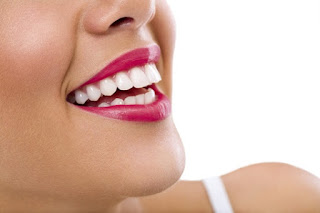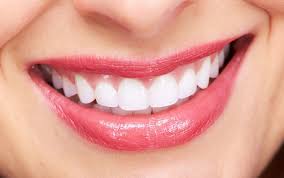Are You a Teeth Grinder? How to Find Out and Seek Help
Teeth grinding, medically known as bruxism, is a common condition that can have detrimental effects on oral health. Many individuals grind their teeth without realizing it, often leading to discomfort and dental problems. If you suspect you might be a teeth grinder, it's important to identify the signs and seek the Best Teeth Grinding treatment available. This guide will help you recognize the symptoms of bruxism, understand its causes, and explore treatment options to protect your smile.
Understanding Bruxism:
Bruxism is the involuntary clenching or grinding of teeth, which can occur during the day or night. It is often associated with stress, anxiety, or sleep disorders. Many people experience this condition without realizing it, as the grinding typically occurs while they sleep. Understanding the different forms of bruxism is essential for effective management.
Types of Bruxism:
There are two primary types of bruxism:
- Sleep Bruxism: This occurs during sleep and is often related to underlying sleep disorders, such as sleep apnea. Individuals may grind their teeth unknowingly, causing damage over time.
- Awake Bruxism: This form happens while a person is awake, often triggered by stress, anxiety, or intense concentration.
Recognizing which type you may be experiencing can help you address it effectively.
Common Symptoms of Teeth Grinding:
Identifying the symptoms of bruxism is crucial for early intervention. Here are some common signs to watch for:
- Jaw Discomfort: Many individuals report pain or tenderness in the jaw muscles, especially upon waking.
- Tooth Damage: Increased wear on the teeth, leading to flat surfaces, cracks, or chips.
- Frequent Headaches: Waking up with headaches or experiencing regular migraines can be a sign of bruxism.
- Sensitive Teeth: Increased sensitivity to hot, cold, or sweet foods due to enamel wear.
- Facial Pain: General discomfort in the face, particularly around the jaw and temples.
If you notice any of these symptoms, it may be time to consider consulting a dental professional for an evaluation.
Self-Assessment Techniques:
If you're concerned about being a teeth grinder, self-assessment can help determine if you need professional help. Consider the following techniques:
- Observe Your Teeth: Look for signs of wear or damage on your teeth. If you notice any unusual flattening or chipping, it may indicate bruxism.
- Consult Your Partner: If you share a bed, ask your partner if they’ve heard grinding sounds during the night.
- Track Your Symptoms: Keeping a journal to note your stress levels, sleep patterns, and any symptoms can help identify triggers and patterns related to grinding.
These techniques can provide valuable insights into your dental health and guide you toward the best teeth grinding treatment options.
Risk Factors Associated with Bruxism:
Understanding the risk factors associated with bruxism can help you take preventative measures. Several factors contribute to teeth grinding, including:
Psychological Factors:
- Stress and Anxiety: High levels of stress and anxiety can lead to muscle tension, contributing to bruxism. Finding effective stress management strategies is vital for reducing grinding episodes.
- Depression: Emotional struggles can manifest physically, increasing the likelihood of bruxism.
Lifestyle Influences:
- Caffeine Consumption: Excessive caffeine can heighten anxiety and stimulate grinding. Reducing your intake of caffeinated beverages may help.
- Alcohol Use: Alcohol can disrupt sleep patterns and lead to increased muscle activity during sleep.
- Smoking: Nicotine is a stimulant that can contribute to teeth grinding and exacerbate stress.
By being mindful of these risk factors, you can take proactive steps to reduce your chances of developing bruxism.
Treatment Options for Teeth Grinding:
If you suspect you are a teeth grinder, seeking professional help is essential. Here are some treatment options to consider:
Dental Solutions:
- Mouth Guards: Custom-fitted mouth guards are one of the most effective treatments for sleep bruxism. These devices help protect teeth from damage and prevent grinding during sleep.
- Dental Corrections: If misaligned teeth contribute to grinding, orthodontic treatments may be necessary to correct the issue and alleviate bruxism symptoms.
Lifestyle Changes:
Incorporating lifestyle changes can also help manage bruxism:
- Stress Reduction Techniques: Practicing mindfulness, yoga, or meditation can significantly reduce stress levels and help mitigate grinding.
- Sleep Hygiene: Establishing a consistent sleep schedule and creating a calming bedtime routine can improve sleep quality, reducing the likelihood of bruxism.
Professional Support:
If your bruxism persists despite implementing lifestyle changes, it may be time to seek professional support. Consult with a dentist or healthcare provider who specializes in bruxism for a comprehensive evaluation and tailored treatment options.
When to Seek Professional Help:
Persistent Symptoms:
If you experience ongoing symptoms such as jaw pain, frequent headaches, or noticeable tooth damage, it is essential to consult a dental professional. They can conduct a thorough examination and help determine the best course of action.
Underlying Conditions:
In some cases, bruxism may be linked to underlying health issues, such as sleep apnea or significant psychological conditions. Seeking a comprehensive evaluation from a healthcare provider can help identify these factors and lead to more effective treatment plans.
Conclusion: Protecting Your Oral Health:
Identifying whether you are a teeth grinder is essential for maintaining good oral health. By understanding the signs and symptoms of bruxism, recognizing risk factors, and seeking professional help when necessary, you can take control of your dental health. Exploring the best teeth grinding treatment options available in Dubai will lead you to effective solutions for managing and alleviating the condition. Don’t hesitate to reach out to dental professionals for assistance in your journey toward better oral health and a pain-free smile.



Comments
Post a Comment